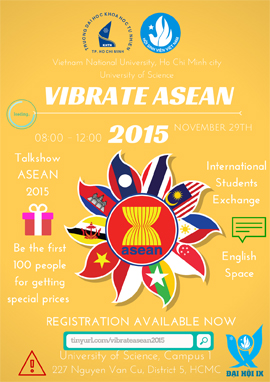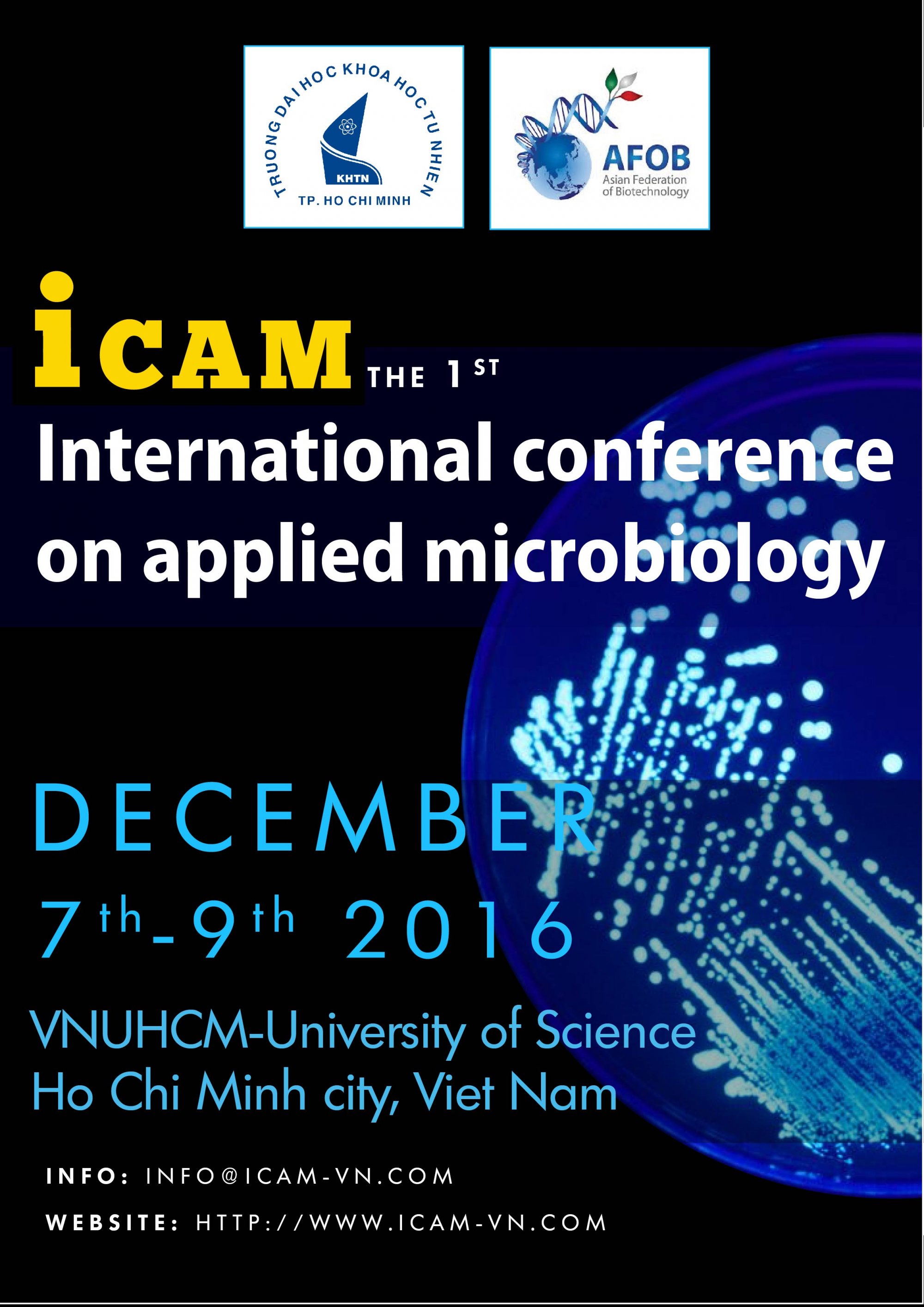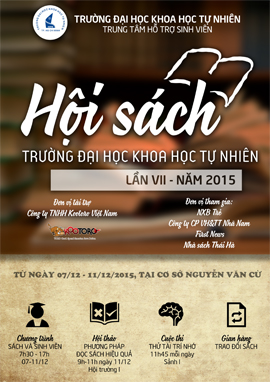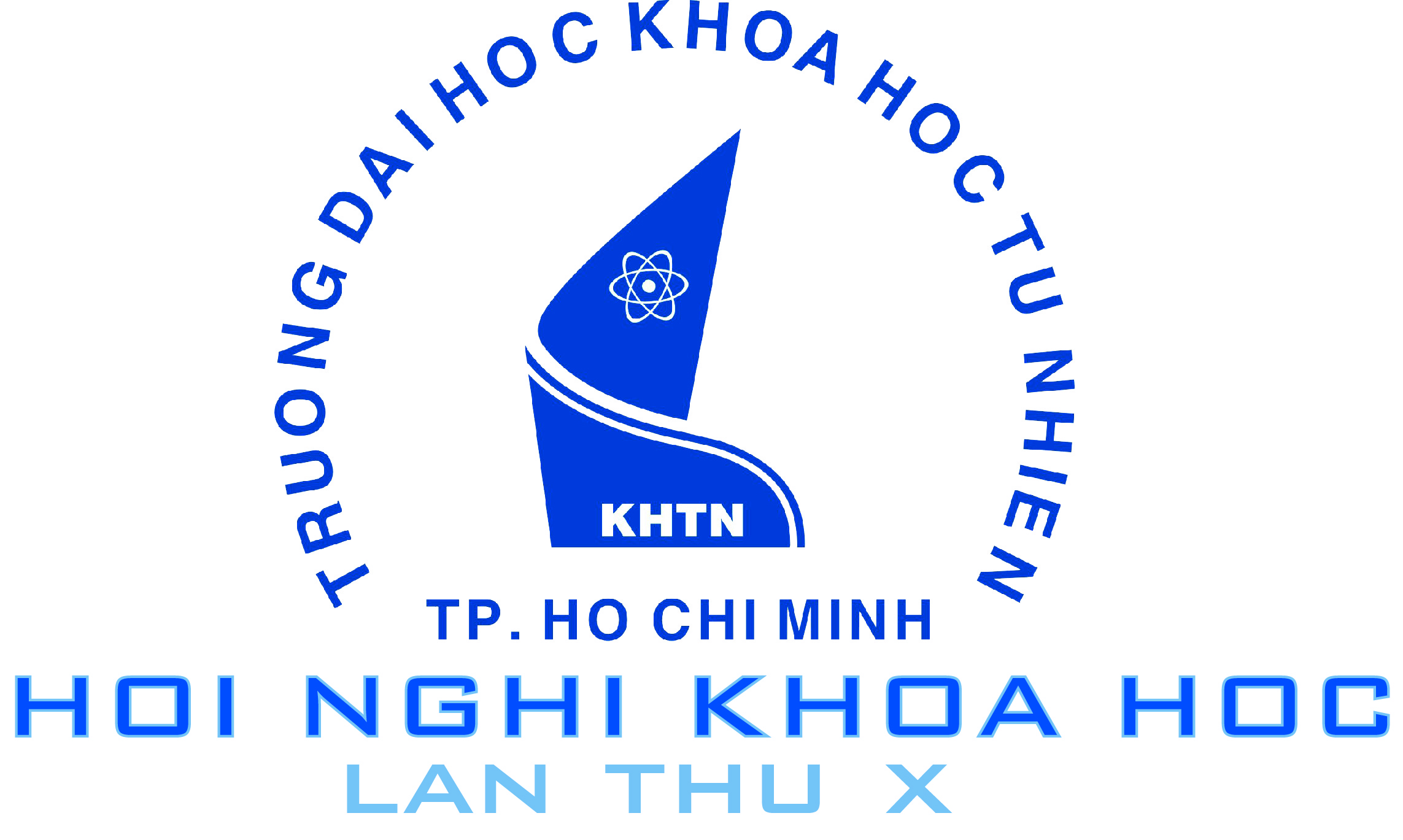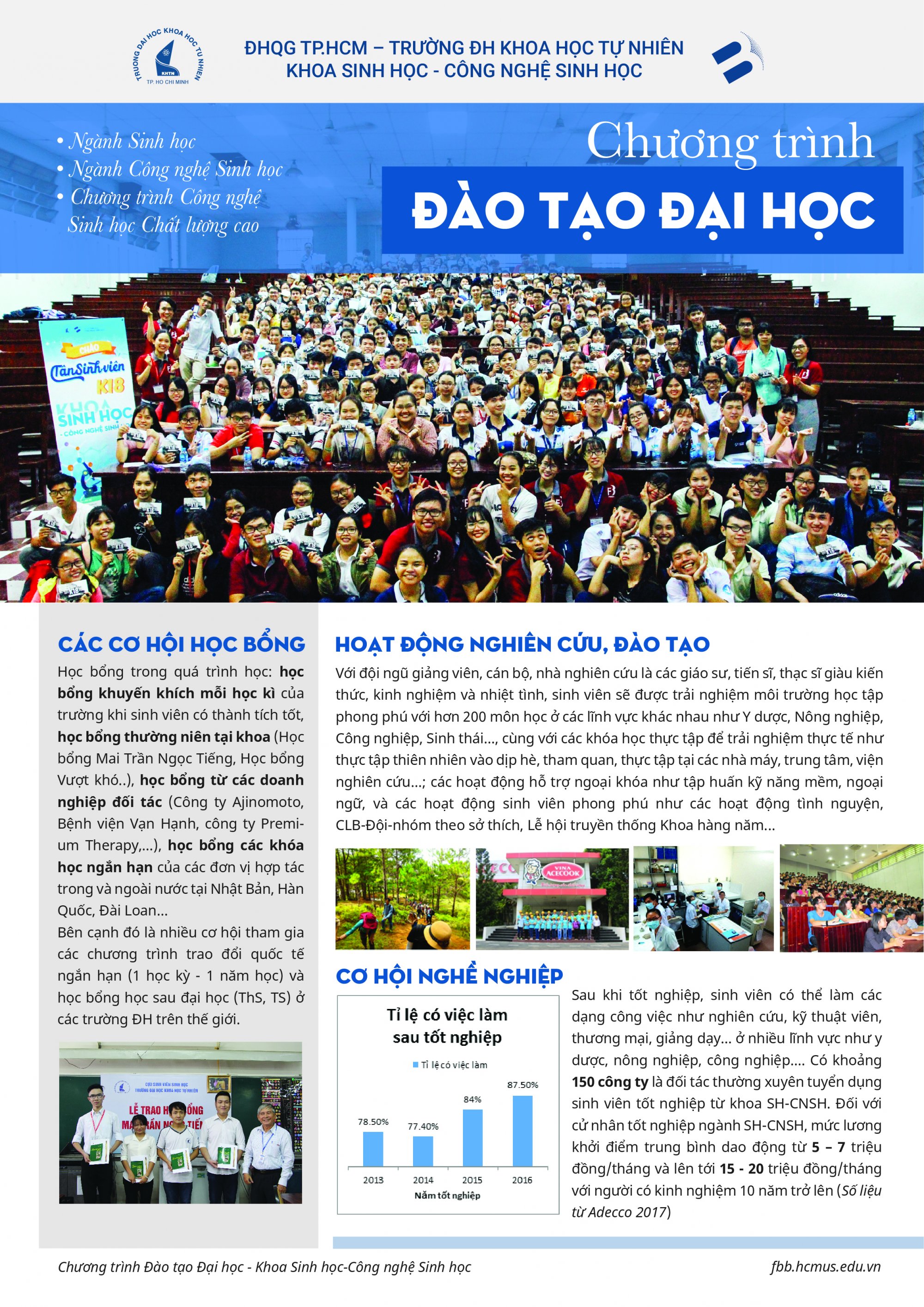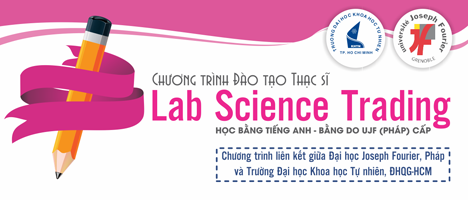Faculty of Biology and Biotechnology introduction
The University actively and periodically subjects its programs to evaluation by accreditation bodies to improve the quality of its programs.
Until the end of 2016, Vietnam National University - Ho Chi Minh City (VNU-HCM) has had 44 programs with external assessment based on AUN-QA Criterion, among that, there are 30 programs received official assessment by AUN (Southeast Asian Universities Network). On the university level, 5 among 6 partner universities of VNU-HCM, including University of Science, passed the assessment and were accredited by Minister of Education and Training with distinction at training institutions level standard. The other university will take the university level assessment in accordance with AUN Criterion. In 2017, about 8 other programs of VNU-HCM are acceded to apply the official general-assessment with AUN-QA Criterion. One of them is our B.S. program of Biology.
Viet Nam National University Ho Chi Minh City was founded on 27 January 1995 by government decree 16/CP on the merging of prestigious universities in Ho Chi Minh City. On February 12th, 2001, the university system was reorganized to have a specific internal organization so that it could perform the mission to be a pioneer in education and science, to contribute significantly to the country’s economic and scientific development. At present, VNU-HCM consists of six university members, one school member, one institute member and various affiliated institutes and organizations.
Before becoming one of the six affiliated universities of VNU-HCM, University of Science (HCMUS) had already served as a pioneer in science education in southern Vietnam by establishing the Division of Indochina College of Science in 1942. In 1977, after the country was unified, the Faculty of Science was merged with the Faculty of Letters to create the Ho Chi Minh City University. In 1996, the Faculty of Science became the University of Natural Sciences and was belong to VNU-HCM. In 2007, the university was renamed as the University of Science. As a key institution of VNU-HCM, HCMUS is responsible for undegraduate and post-graduate education, research, and technology transfer in the fields of natural sciences. The University offers services and products of excellence, meeting the increasing demand of the nation’s socio-economic development and international development trends, and integrating into the region’s and global advanced higher education.
The Faculty of Biology and Biotechnology (FBB) (it was named as Faculty of Biology before 01/05/2015) is one of the faculties that has been rooted since the early day of the HCMUS. Currently, FBB has 8 departments (Genetics, Biochemistry, Microbiology, Plant Physiology, Animal Physiology and Biotechnology, Ecology and Evolutional Biology, Molecular & Environmental Biotechnology and Plant Biotechnology & Biotransformation), 13 laboratories, 1 center, and 3 cooperated laboratories which are in charge of the academic and research activities. We provide two undergraduate programs which are Biology and Biotechnology program with more than 500 enrolling students and supply about 400 graduates to the workforce each year. Our programs aim to provide students with a modern education in biology and biotechnology so that they are likely to continue into graduate programs, teaching profession or other careers in agricultural, chemical, clinical, political, policy and industrial sectors of society.
The Biology training program has undergone many updates to improve the quality and keep pace with trends and social needs. The major renovation was in 1995, the curriculum was changed from a module-based program into a credit-based program to increase the flexibility of the curriculum. In 2010, to increase initiative and student self-study time, the curriculum was arranged and formulated into 140 credits (instead of 180 credits of the old curriculum). At the present, the program has reduced to 130 credits to enhance the generic skills for students through extra-curricular courses and activities. In addition, the program has applied new teaching methods, ensured transparency, improved the quality of training through learning outcomes of the program and the courses which are based on the stakeholder feedback. The program will be evaluated and improved upon every three years of implementation of the new curriculum.
With the aim of ensuring and improving the quality of training and preparing for quality assessment by AUN-QA, the Dean of Faculty conducts self-assessment report of the Biology Bachelor of Science (B.S) program. The Biology program is a well-established discipline with a large number of lecturers and students providing a significant number of human resources for research and labor market activities. The Biology is the pioneer for the forefront of the assessment process at the Department of Biotechnology.

